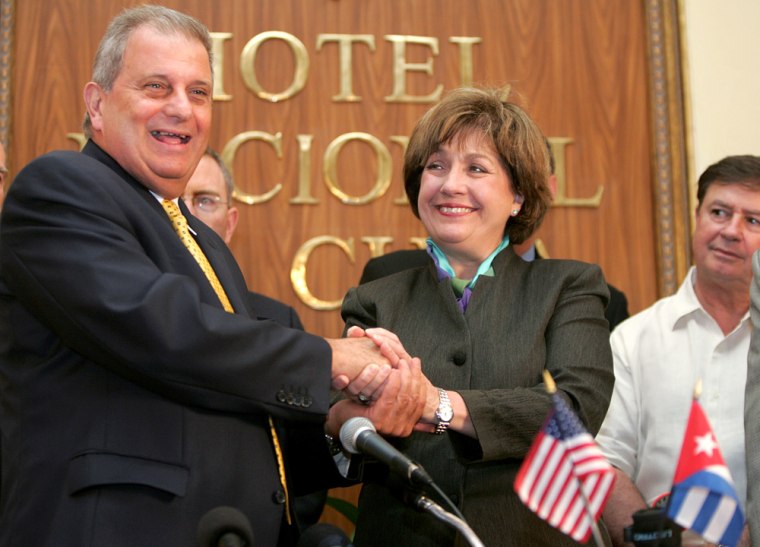Louisiana Gov. Kathleen Blanco accomplished what she set out to do during a three-day visit to Cuba this week: bolster business ties with a burgeoning market just hours away from the Gulf state.
The Louisiana state delegation signed four key agreements with Alimport, the Cuban government’s chief food importer, worth $15 million — some $5 million more than Alimport’s initial proposal to the Democratic governor.
The agreement included a $2 million pledge to buy 10,000 tons of milled rice from Louisiana Rice Mill and 160 tons of powdered milk from the AnPro Trading company. Cuba also agreed to increase shipments through the Port of New Orleans.
Politics aside, trade the bottom line
Blanco’s trip was only the fourth by a U.S. governor to Cuba since the 1959 revolution. It came under heavy fire from some in her state’s Cuban-American community, who said it was a propaganda boost to Fidel Castro’s communist government.
Upon her arrival in Havana, Blanco tackled the detractors head-on. “We think Louisiana needs to be ... in the markets of the entire world. We believe Cuba brings value and we should not ignore any value."
Prior to the accord, the Port of New Orleans already handled more cargo destined for the island than any other U.S. port, according to Gary LeGrange, president of the American Association of Port Authorities and chief of the New Orleans facility.
Pedro Alvarez, Alimport CEO, shipped his first purchase of American farm products back in 2001 through the New Orleans facility. “It’s a very important port for Cuba.”
Drought creates demand for even sugar
The Louisiana trade deal falls under a Congressional exemption to the U.S. trade embargo that allows food and medicine sales to Castro’s government. Recently, Alvarez announced that Cuba now ranks 25th among food export markets for American products.
Over the past three years, Alvarez has paid American shippers and suppliers more than $900 million for purchases of basic food items such as rice, eggs, poultry, wheat and powdered milk. He claims “about 95 percent” of that ends up on the domestic market and is sold at “subsidized government prices.”
For instance, Alvarez said that under the national food ration, children seven years of age and younger are eligible to purchase a liter of milk at a cost of 20 Cuban cents or the equivalent of an American penny.
The Cuban importer also said his company would consider buying Louisiana sugar during the next round of negotiations after a severe drought decimated much of this year’s harvest. Once the king of the Cuban economy, milling now underway could possibly yield the lowest since 1909 when the country produced just 1.56 million tons.
Other purchases made by Alvarez also go to offset food scarcity brought on by the drought enveloping the eastern half of the island. Considered the worst in Cuban history, the drought decimated over 40 percent of Cuba’s farm belt and starved about a quarter of the nation’s cattle stock.
Deal set for now
But Cuban purchases of American farm products could all come to an abrupt stop later this month when Cuba will be forced to begin complying with new Bush administration guidelines that demand payment before the goods leave U.S. ports.
In a prepared statement, the Havana government recently warned that it might stop buying from U.S. suppliers for fear that the goods could be confiscated by Cuban exiles filing claims for court-awarded damages. In past years, American courts have awarded Cuban assets to individuals who brought monetary suits against the Cuban government.
Despite this, Alvarez went ahead and signed the deal with the Louisiana governor, promising to “make good” on this newest contract along with all outstanding agreements.
